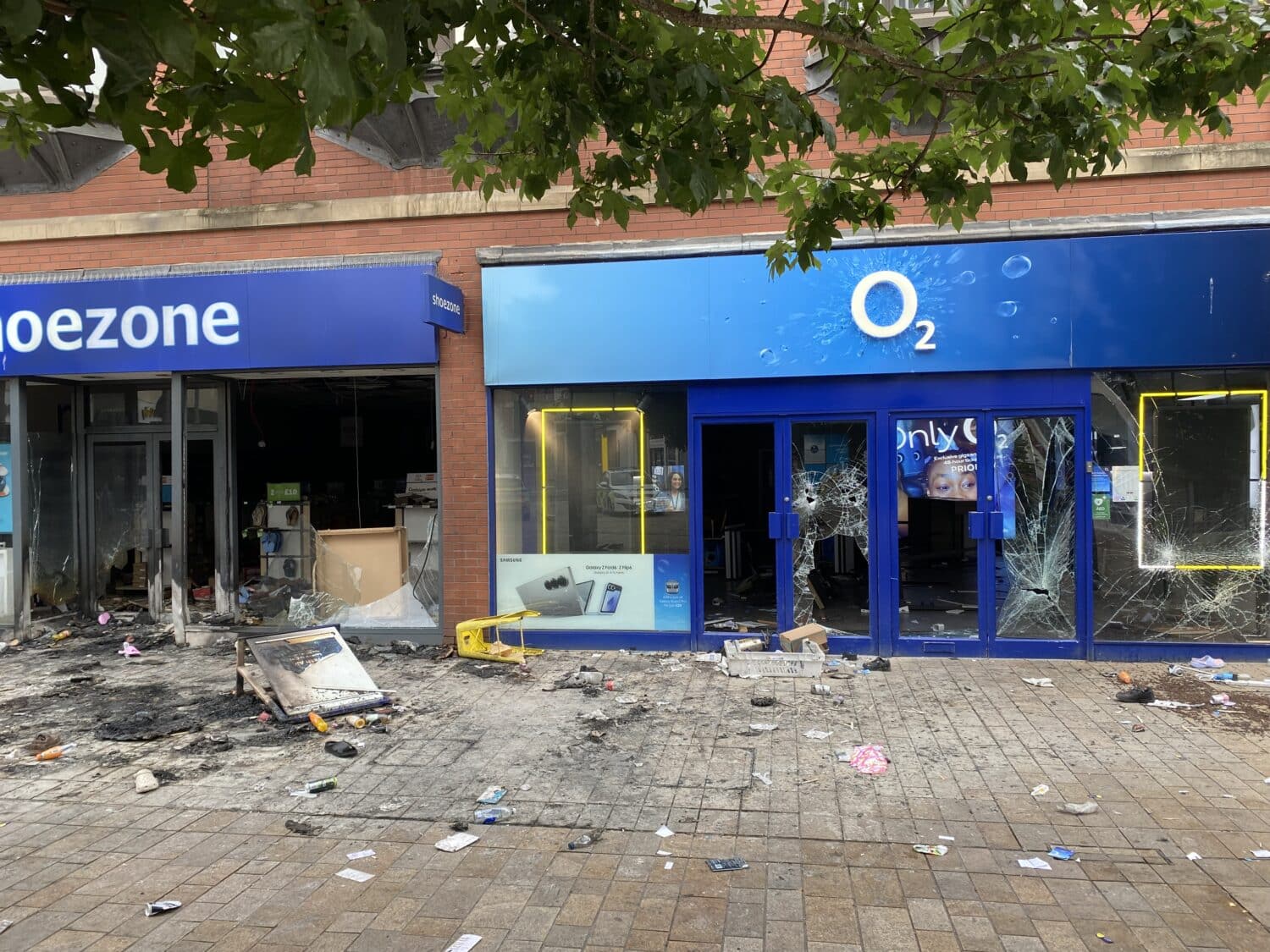After the storm
Labour must tackle the root causes of identity-based violence and division, writes Andy Fearn
Summer 2024 saw the most serious racist far-right riots in the UK in a generation. The disturbances were violent, organised and geographically widespread. In Plymouth, rioters threw bricks at police, with one officer pulled to the ground and punched. In Hull, three Romanian men were forced to abandon their car after being attacked by a mob. In Tamworth, a hotel housing asylum seekers was petrol bombed.
As prison sentences are handed down for those found guilty of violent activity and whipping up hate, some in Labour may be tempted to move on to other matters. However, committing to the hard work of rebuilding community cohesion and resilience – eroded through years of austerity, Brexit, Covid-19, and further by divisive political rhetoric – is both a moral obligation and essential to the success of the new government.
The widespread targeting of migrant, refugee, and Muslim communities did not come out of nowhere. It is a symptom of deeper problems, that have intensified over the past decade. The scale and coordination of the disorder demands a strategic, sustained response. The temptation to focus exclusively on bringing down the most visible ringleaders should be avoided. Disrupting online agitators’ ability to sow discord and confronting the narrative of the far right are essential tasks – but insufficient alone. Building resilient communities in every corner of the country will require much more than a smart communications campaign. As Protection Approaches has argued previously, to repair the UK’s frayed social fabric the government needs to transform how it interacts with communities and citizens, nurturing participation and building agency to foster long-term cohesion – an essential contributor to national resilience.
Making progress in this area need not divert the government from its overarching purpose. In fact, restoring community cohesion sits well alongside Labour’s approach to governance. Focusing on prevention would echo the strategy Labour has adopted elsewhere, most notably in health. Just as neighbourhood-based public health measures can reduce hospital waiting lists, greater resources to build community cohesion could ease pressure on the justice system, and likely cost the public purse less than responding to hate crime and disorder. Second, Labour could present efforts to properly address the rise of the populist right as a dividing line with the Conservative opposition – especially with senior Tories engaging in inflammatory rhetoric, such as that deployed by Robert Jenrick during the Tory leadership contest. Above all, Labour’s determined focus on delivery is a prerequisite for building resilient communities. The populist right will not disappear, but its appeal can be limited if Labour invests political and financial resource into communities, reduces inequality, brings down GP waiting times, and builds more housing.
Concretely, the government has a number of options to consider. It must, surely, make plans to introduce a new hate crime action plan, the last one having expired in 2020. It should also go further, considering how we can build community resilience from the ground up. It could commission a wide reaching inquiry into the root causes of the summer riots and how we solve challenges to cohesion in the UK more widely, encompassing areas such as economic deprivation, cuts to community-based services, the role of education system, political instrumentalisation of identity politics and grievance, and public concerns about immigration. Doing so would underline Labour’s commitment to listening to the country as a key part of the policymaking process, an approach Keir Starmer set out as he announced the introduction of the Civil Society Covenant, to be published in 2025.
At the same time, community-based approaches to cohesion and resilience must be recognised as central to addressing societal challenges as part of a holistic approach that addresses structural inequalities, economic precarity, and the root causes of social division. Over the past four years, Protection Approaches has supported more than 500 community-based organisations in their efforts to address the root causes of identity-based violence and division. Local, trusted organisations – including community centres, youth clubs, cultural associations, support networks, and charities – have a proven track record of building resilience within communities. They best understand local needs and have demonstrated their effectiveness time and again. Yet, despite this impact, these organisations have faced severe funding cuts and, in many cases, have disappeared altogether.
Rebuilding community cohesion is no small task, but the time is ripe. Trade unions, think tanks, civil society and grassroots organisations are all actively considering how to tackle the far right and foster resilience. MPs, too, are beginning to see the need for leadership on this issue. Now is the time for government to tap into this expertise and momentum to develop a robust strategy for community cohesion and resilience across the UK.
Image credit: Dom Fellowes via Wikimedia Commons, CC BY 2.0

